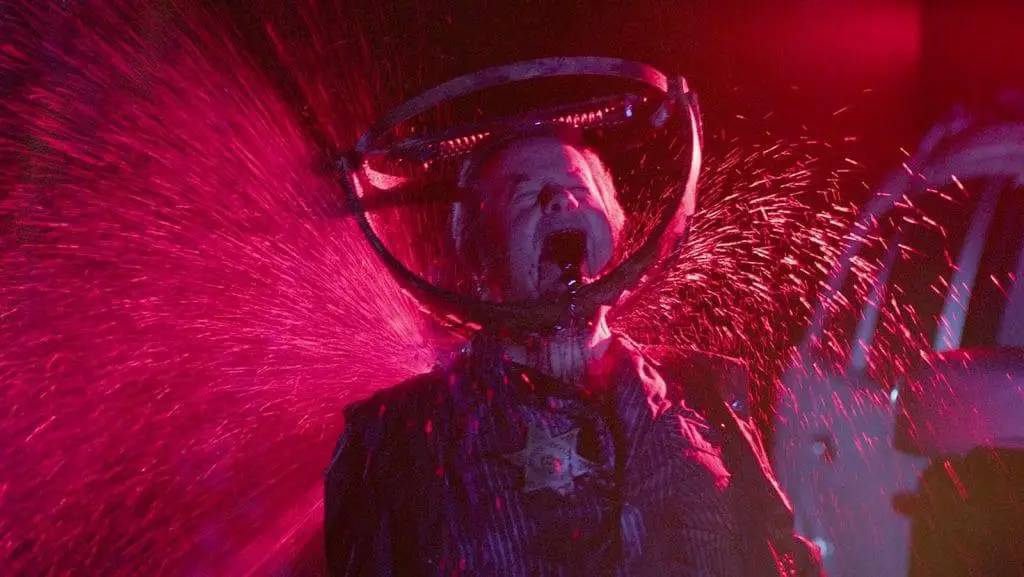
Baghdad has been liberated, but the “Baghdad by the Bay” – as the noted columnist Herb Caen dubbed his home city – remains ever liberal. The 46th San Francisco International Film Festival invited a guest programmer, French critic and magazine editor Michel Ciment, who not only brought himself, but somehow managed to smuggle an armload of what Opening Night filmmaker Alan Rudolph calls “Weapons of Mass Enlightenment” past airport security: Films. French films, in fact.
Aren’t we supposed to be boycotting them?
The San Francisco Film Society’s annual two-week occupation (April 17-May 1) of an AMC multiplex in Japantown and the glorious Castro Theatre is always a welcome sight, but the program spearheaded by Executive Director Roxanne Messina Captor this year is leaving those who have juggled job, family and friends and a little too much 24-hour war coverage feeling like the Parisienne in Clair Denis’ excellent “Friday Night” – gloriously disoriented, surrendering to a cacophony of sights, sounds and internal impulses.
Liberation, indeed.
Among the 200 films are 91 narrative features, 25 documentaries, three world premieres, two international premieres and 18 either U.S. or North American premieres. Robert Altman and Dustin Hoffman will be presented with lifetime achievement awards, and other tributes have been made to influential critic Manny Farber, avant-garde filmmaker Pat O’Neill and Cuban film editor Nelson Rodriguez.
Twenty-three are French, starting with a collection of 1920s hardcore porn curated together under the title “The Good Old Naughty Days” to such modern day gems as “Friday Night,” a further exploration into the visual for Denis, who seems destined to make a silent film one of these days; “His Brother,” for which Patrice Chereau won the director’s award at Berlin; “Les Turbulence des Fluides,” Manon Briand’s small giddy gem set in Canada that melds apocalypse and love in a way reminiscent of Wim Wenders’ “Until the End of the World”; and Daniele Thompson’s Jet Lag, a romantic comedy with Juliette Binoche and Jean Reno.
“Our festival is known to be an international one in scope – geographically, culturally and thematically,” Messina-Captor told the Opening Night crowd at the Castro. “As this country’s foreign policy receives mixed reviews both at home and abroad, we feel arts and culture more than ever should stick to our perspective and focus on our mandates and goals.”
Or as Rudolph paraphrased, “Films are important. They’re the only things between us and real life.”
Rudolph’s close connection to Altman makes him an ideal choice for an opener, but his mature family comedy “The Secret Lives of Dentists” jumps the tracks and careens out of control after awhile. Campbell Scott and Hope Davis are a husband and wife dentist team who have three kids and one of them – Davis – gets the middle-aged itch. As Scott suspects her of having an affair, he conjures up the image of one of his more annoying patients, played by Denis Leary, as an imaginary companion who gives him edgy, witty advice. Craig Lucas (“Longtime Companion”) delivers fresh insights into the invisible tensions within a yuppie marriage, but the idea to make Leary the driving edge of Scott’s battle between nice-guy sensitivity and jealous rage (not in Jane Smiley’s original novella, The Age of Grief) is a fatal miscalculation.
The festival closes May 1 at the Castro with Mark Decena’s Dopamine, a sort of chemically dependent romantic comedy.
The less sexy but more apt choice for an opener or closer could have been the world premiere of “The Olive Harvest,” a Palestinian film about a man released from an Israeli prison who is being pressured to marry the woman his younger brother loves. The other world premieres are the documentary “Lost Boys of the Sudan” and San Francisco’s own “Save It For Later,” Clark Brigham’s feature debut about a struggling artist returning home.
Among the U.S. premieres, three are of particular note. “Cry Woman” is a fabulous movie from China about a woman who, in hard economic times, discovers she has a talent for crying, and is hired to wail at funerals. Alternately hilarious and heartbreaking, Liu Bingjian’s colorfully filmed social masterpiece features a dynamic performance from lead Liao Qin and deserves serious attention from U.S. distributors.
Argentina’s “Extrano” is an interesting experiment in sparseness beautifully shot by director Santiago Loza about a middle-aged doctor who has given up his practice because he has given up on life. It won one of the three Tiger Awards at Rotterdam in February.
Finally, “Marooned in Iraq” is Bahman Ghobadi’s follow-up to his acclaimed “A Time for Drunken Horse,” following the misadventures of three Kurdish musicians during the Iran-Iraq war.
As Rudolph might say, real life is getting in the way.
For more information, visit the San Francisco International Film Festival website.
